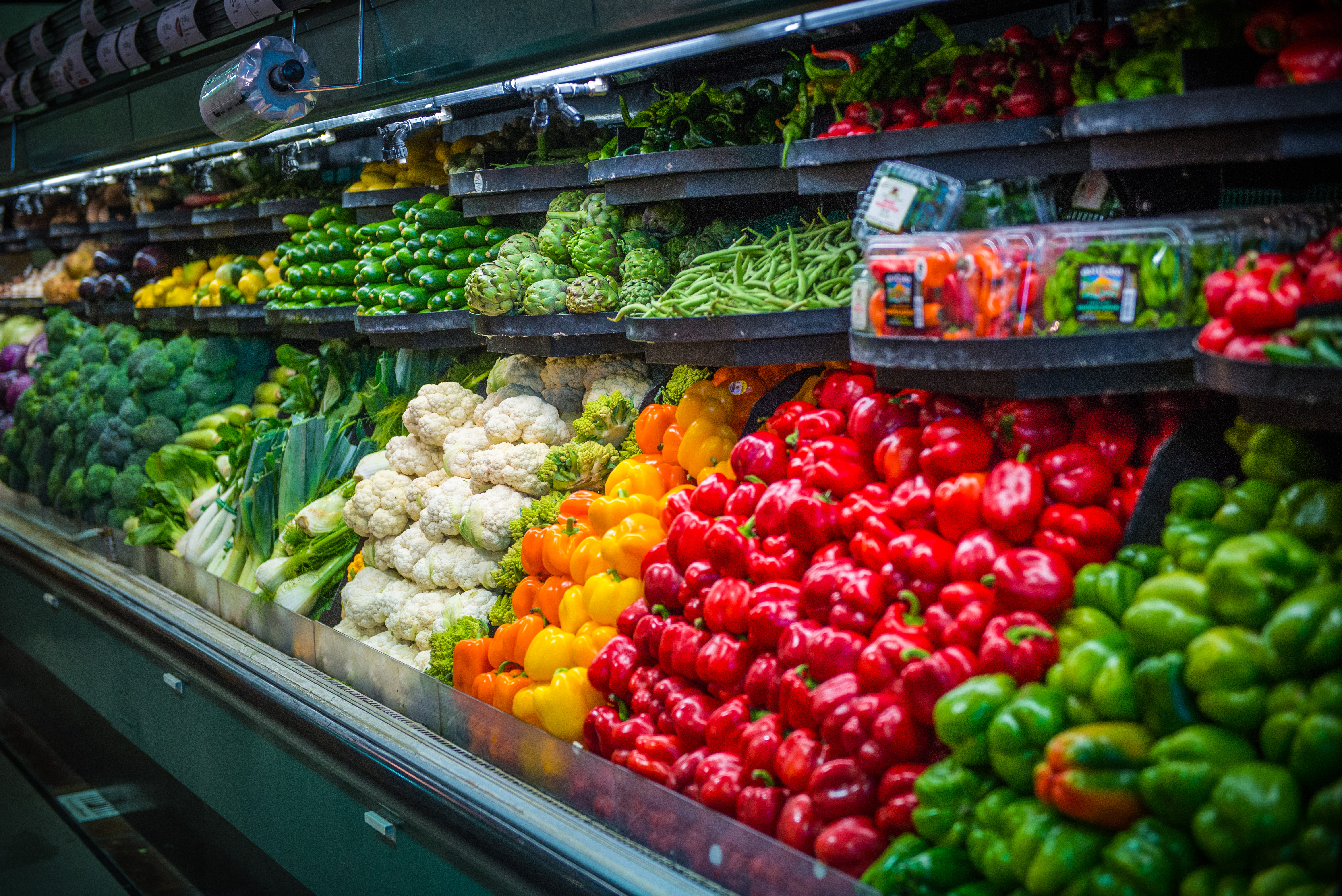
Co-op News | Spring Quarterly 2018
Co-op Recertifies as Organic Grocer

Last November, the Co-op had its annual organic inspection with California Certified Organic Farmers (CCOF). Thanks to the cooperation of every department at the Co-op, we heard back from CCOF and as of February, North Coast Co-op is officially a certified organic grocer for the twelfth year in a row!
Ensuring organic integrity is a complex, multi-step process. First, everyone who works at North Coast Co-op is fully trained on what constitutes a certified organic product. Each staff member signs an affidavit stating they have read and understand the definition of certified organic.
In addition, all staff members who work in departments that handle organic produce are trained to maintain the integrity of the organic product they are handling. We ensure organic and conventional products never touch or are comingled either on a retail display or in storage. When we sanitize a surface that touches food—cutting boards, sinks, knives—we are required to completely remove any sanitizer residue and document when we do so.
We also maintain extensive records (our certification binders are massive!). We keep updated copies of organic certificates from all vendors that sell us organic products. We also fully detail our “Organic System Plan” which includes things like how each department handles organic products, what approved pest control practices we have in place, as well as examples of price signs we use to represent organic products to our shoppers.
We can only be a certified organic retailer if we are accredited by an independent third party certifying agency. The certifying agency we choose is California Certified Organic Farmers. Like all certified farmers or certified food makers, we pay the certifying agency to audit our operation and declare we have complied with organic regulations. CCOF schedules an organic inspector to visit our stores once a year and the inspector thoroughly reviews all of the ways we maintain organic product integrity. The inspector then reports back to CCOF. Once CCOF is certain we are maintaining that integrity, they renew our certification.
With the assistance of the Co-op’s Merchandising team, CCOF toured both stores last November to ensure that we are storing organic and non-organic items properly, asking staff what procedures they take to safeguard that there is no comingling of organic and non-organic produce. Our staff were able to respond to their questions easily, demonstrating the organic handling practices training they have received. CCOF also looked over our organic certificate supplier binder to make sure that we have over 100 current organic certificates and organic system plan summaries on file.
Organic production uses sustainable practices that, once established, are relatively self-perpetuating and long-term solutions including building healthy soil naturally, using biological methods to control pests, and maintaining humane conditions for livestock. While most food travels many miles and changes hands multiple times before it reaches our plate, organic systems are transparent. Production and delivery records known as “audit trails” are documented, inspected and audited by third-party organic certifying agents to ensure organic producers adhere to organic standards. International organic imports must have international certifying agents that use the same criteria all over the world that meet or improve on qualifying certification standards.
Organic is also non-GMO. Because Genetically Modified Organisms (GMO) crops are prevalent in the United States food supply, organic farmers must take extra steps to ensure their organic crops are not inadvertently contaminated by GMOs. These efforts are verified by their inspector each year. Methods used include buying non-GMO seeds from reputable distributors and testing them before planting, timing their planting to prevent cross-pollination with neighboring GMO crops, preserving a “buffer zone” of uncultivated land around the perimeter of the farm, and documenting cleaning of farm equipment. Certifiers accredited by the U.S. Department of Agriculture (USDA) conduct periodic residue testing to further verify organic food does not contain prohibited substances, including GMOs.
While this organic certification process can be arduous and expensive, it is worth it to maintain the trust of our shoppers and promote a sustainable, transparent and ecologically sound system of food production that harvests abundant, nutritious, delicious food.




